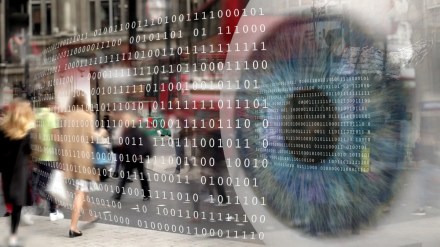Imagine a world where an AI assistant will help you shop. A bot customised to your needs, that can recommend items based on your shopping pattern – be it grocery or clothes. This reality might not be that far away.
Many retail stores, today, have surveillance systems in place that can monitor not just what you shop, but how you shop. AI-based surveillance tools can transform real-time video feeds into actionable insights, benefitting businesses and open doors to new applications of data analytics.
More than surveillance, AI integration into monitoring systems is business intelligence in motion. Applicable throughout sectors like retail, food and beverage and manufacturing, AI-based surveillance is the newest innovation in cyberspace. A common fear among many, has turned into a reality when it comes to data collection – how far is too far?
How it works
To understand the implications on privacy of AI-based surveillance, it is essential to understand how it works. A popular solution provider, told FinancialExpress.com that their tool StorePulse. AI works on adapting computer vision and tapping into the facial recognition capabilities of a surveillance camera. The application of which ranges from a parking lot to a conveyor belt of a manufacturing plant. Business owners can receive alerts in case of a lapse in their region of interest (ROI). For customers, it is a whole new world of hyper personalisation. While video analytics is a tool-for-winners in business, the entire experience for consumers could potentially change.
As an example, a retail store enabled with such technology can provide their customers a personalised shopping experience. From suggested items to restock to recommendations for your next buy. AI-based tagging can be a closer reality than you think. For businesses, it sees the customer’s dwell time and uses computer vision for face recognition. Thus, AI-based personalised notifications may soon be pinging your phones!
Reduced human intervention
Bharat Chadha at Uniqus told FinancialExpress.com that, “Winning in today’s cyberspace isn’t just about sophisticated software, it’s about effectively navigating the complexities of data rights”.
Adding further, the Uniqus expert shared, “ethically leveraged AI-driven analytics…earn stakeholder trust, minimise risk, and enhance decision-making speed, ultimately converting data into lasting competitive advantage and sustained business impact.”
Listing down the advantages of the process, Chadha shared that, “these insights provide a continuously updated pulse of operations, powering hyper-personalised marketing, dynamic staffing, and uninterrupted production. The payoff: faster decisions, wider margins, superior customer experiences, and a lasting competitive edge.”
Surveillance vs security
Geogre Orwell predicted in 1984, a surveillance state. However, is it fair to call this data analytics tool a dystopian form of “big brother”? That’s where opinions are divided. On one hand, where retailers await the surprising new innovation, on the other hand are cyber security analysts raising a red flag towards the concerns about privacy. The colloquial notion of data has seamlessly transformed into power, the one who has it has tapped into the hidden potential of controlling consumer behaviour, let alone influencing it.
Privacy concerns were flagged by Aryaman Rana, a cybersecurity analyst at Coforge Ltd when he told FinancialExpress.com that “when you hook up AI surveillance with IoT or cloud systems like cameras in a store analysing customer behaviour it’s like adding new lanes to a highway: more traffic, more risks.”
Where IoT devices like AI-based softwares governing smart cameras tend to have default passwords becoming the “weakest link” in the chain. As per Rana, the “cloud misconfigurations…can expose sensitive customer information”. Ethical concerns rise from malpractices like “AI poisoning” which can lead to manipulation of data and false alerts, ultimately hampering business objectives.
Thus, as wisely said by the expert at Coforge “profiling can optimise business, but it shouldn’t feel like Big Brother.” Brands should “set clear boundaries on what the AI does, like not storing identifiable data longer than needed, and have humans review key decisions to avoid over-reliance on the tech.”
Data Protection in India
Providing quick ethical considerations, while acknowledging how AI-surveillance is a true reality, shared the Coforge expert. how businesses can be upfront about the surveillance. In fact, India passed a Digital Data Protection Act (DDPA) in 2023 establishing a separate Data Protection Board along with enforcement guidelines and steps. This is equivalent to the General Data Protection Rights (GDPR) in the US and EU. Its extra territorial bandwidth allows a global applicability to data infringement outside India as well.
“Many leadership teams mistakenly view AI-driven surveillance as a simple, instant solution: connect computer-vision software to existing cameras and dashboards and expect immediate predictive alerts and a quick ROI. However, the reality is far more complex and demanding,” shared the expert from Uniqus. Identifying several factors such as consent based data collection and ethical codes.
It all, thus, rallies continuously between ethics and the thin line between surveillance and security. While businesses can benefit largely from this tool, consumers must be made aware of the business intelligence integration.
